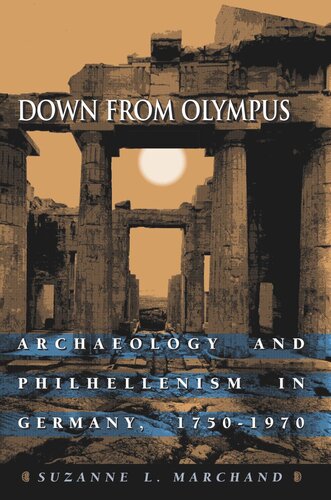

Most ebook files are in PDF format, so you can easily read them using various software such as Foxit Reader or directly on the Google Chrome browser.
Some ebook files are released by publishers in other formats such as .awz, .mobi, .epub, .fb2, etc. You may need to install specific software to read these formats on mobile/PC, such as Calibre.
Please read the tutorial at this link: https://ebookbell.com/faq
We offer FREE conversion to the popular formats you request; however, this may take some time. Therefore, right after payment, please email us, and we will try to provide the service as quickly as possible.
For some exceptional file formats or broken links (if any), please refrain from opening any disputes. Instead, email us first, and we will try to assist within a maximum of 6 hours.
EbookBell Team

4.8
64 reviewsSince the publication of Eliza May Butler's Tyranny of Greece over Germany in 1935, the obsession of the German educated elite with the ancient Greeks has become an accepted, if severely underanalyzed, cliché. In Down from Olympus, Suzanne Marchand attempts to come to grips with German Graecophilia, not as a private passion but as an institutionally generated and preserved cultural trope. The book argues that nineteenth-century philhellenes inherited both an elitist, normative aesthetics and an ascetic, scholarly ethos from their Romantic predecessors; German "neohumanists" promised to reconcile these intellectual commitments, and by so doing, to revitalize education and the arts. Focusing on the history of classical archaeology, Marchand shows how the injunction to imitate Greek art was made the basis for new, state-funded cultural institutions. Tracing interactions between scholars and policymakers that made possible grand-scale cultural feats like the acquisition of the Pergamum Altar, she underscores both the gains in specialized knowledge and the failures in social responsibility that were the distinctive products of German neohumanism.
This book discusses intellectual and institutional aspects of archaeology and philhellenism, giving extensive treatment to the history of prehistorical archaeology and German "orientalism." Marchand traces the history of the study, excavation, and exhibition of Greek art as a means to confront the social, cultural, and political consequences of the specialization of scholarship in the last two centuries.